Fierce competition with imported mushrooms
As an organic mushroom producer, sharing with reporters of Industry and Trade Newspaper, Mr. Mai Van Hung - General Director of Nameco Good Mushroom Joint Stock Company (Thanh Son district, Phu Tho province) - said that by applying the cultivation technology of mushroom powerhouses such as Japan, Korea, and China, the unit has overcome the weakness of tropical weather which is not favorable for mushroom cultivation in Vietnam.
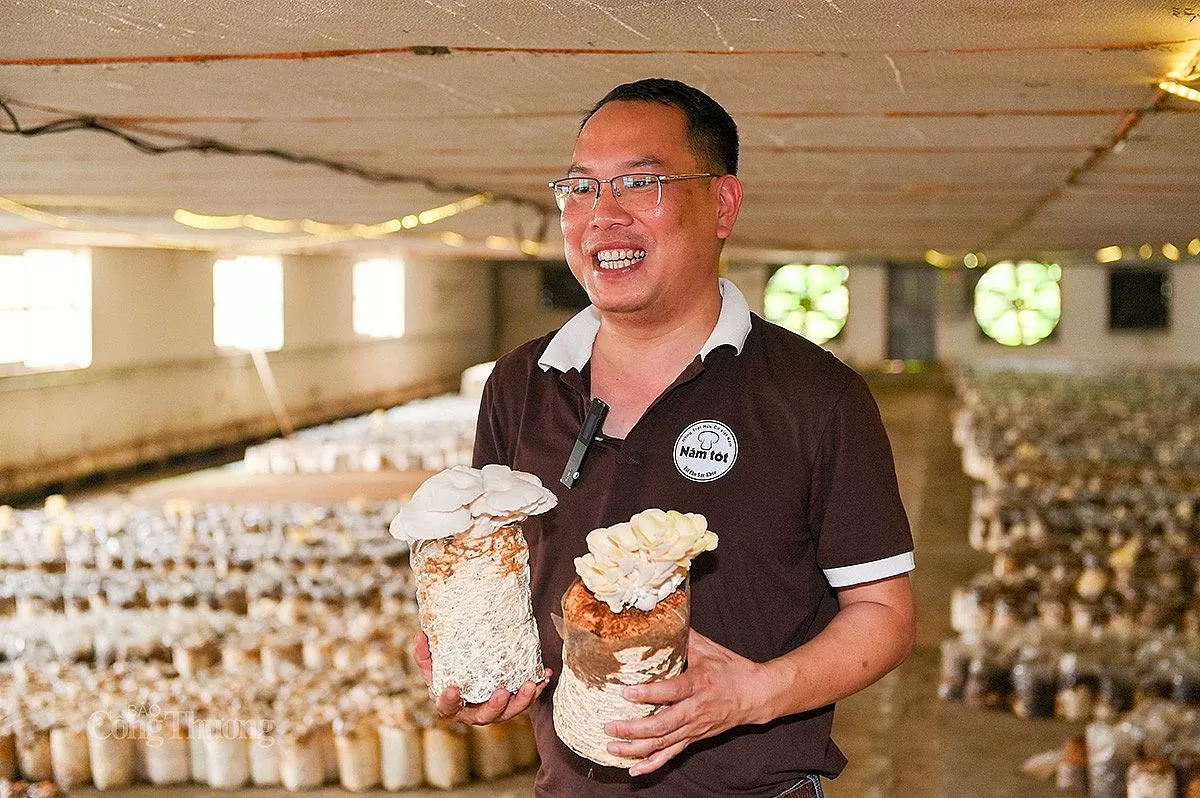 |
| Organic mushroom growing model at Nameco Good Mushroom Joint Stock Company (Thanh Son district, Phu Tho province). Photo: NH |
In 2020, Nameco's products achieved Vietnam organic certification, with more than 15 product lines of fresh, dried, and deeply processed mushrooms. The products are available in 30 provinces and cities and are distributed in mini-supermarkets and vegetarian restaurants.
According to Mr. Hung, Vietnam has abundant raw materials at low prices, a large number of available human resources, and a large domestic and international demand. However, the current difficulties for organic mushroom growers are that their facilities are not modern, and they cannot access capital sources, especially preferential capital sources for agriculture . The cost of producing organic mushrooms is still high and the preservation time is short compared to imported mushroom products.
In addition, knowledge about clean mushrooms of people and product consumers is still weak and lacking, leading to difficulties in product consumption. Competing with rivals are imported mushroom products disguised as Vietnamese products with preservation time twice or even three times longer.
“The preservation time of clean mushrooms is only 7-10 days, at a temperature of 3-8 degrees Celsius. Therefore, our products cannot compete with imported mushrooms with a preservation time of 30-40 days,” said Mr. Mai Van Hung.
Choose deep processing for the long haul
According to Mr. Mai Van Hung, to use fresh mushrooms without preservatives, we must meet 3 criteria: Fragrant, crispy, sweet... These criteria, consumers must eat to feel. If only smell and look, it will be difficult to distinguish. If only look, consumers will only choose mushrooms with preservatives. Therefore, the problem of marketeducation is the biggest problem.
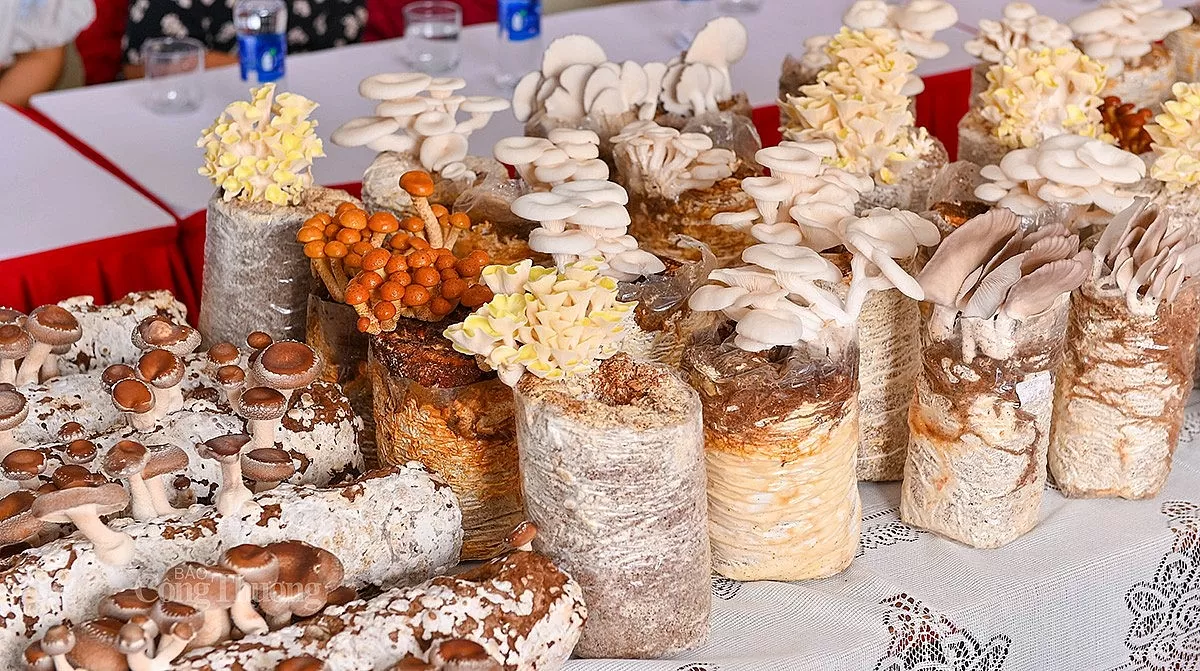 |
| Nameco's products have achieved Vietnam organic certification with more than 15 product lines of fresh, dried, and deeply processed mushrooms. Photo: NH |
“Each type of mushroom has its own unique flavor. With mushrooms containing preservatives, sellers are targeting customers’ preferences for crunchiness, which makes consumers feel delicious when they eat them. As for whether they are good for the body, only nutritionists can analyze them,” said Mr. Mai Van Hung.
Talking to reporters of Cong Thuong Newspaper, Associate Professor, Dr. Tran Dinh Toan, former Director of the Institute of Clinical Nutrition, Member of the Nutrition and Drug Council - Central Health Protection Committee - said that, in addition to containing antioxidant and anti-inflammatory activities, mushrooms also contain a very valuable ingredient, beta-glucans.
Using mushrooms not only helps the body absorb protein, vitamins or micronutrients but is also a way to introduce beta-glucans into the body. Mushrooms have the best nutritional value when they are alive (meaning without preservatives). However, the process from harvesting to reaching consumers will take some time. The longer the time to reach consumers, the lower the quality will be.
While it is difficult to compete in price and consumption time with imported mushrooms that currently account for 98% of the market, Associate Professor, Dr. Tran Dinh Toan said that businesses need to go in the direction of deep processing and turning these mushrooms into medicinal mushrooms.
“Beta-glucans are a very good immune system enhancer. The most beneficial way to eat mushrooms is to introduce beta-glucans into the body to increase the body's resistance. This has been proven worldwide. In Vietnam, there are also science and technology enterprises that produce beta-glucans from 7 different types of mushrooms,” said Associate Professor, Dr. Tran Dinh Toan.
Regarding this issue, according to Mr. Mai Van Hung, while it is difficult to compete in terms of price and consumption time with imported mushrooms, diversifying mushroom products is the solution chosen by businesses. Currently, businesses are investing in a freeze-drying technology line, at the same time, cooperating with research institutes and experts to improve production efficiency as well as provide deep processing solutions, developing medicinal products from mushrooms.
“The company is promoting a product that creates a beta-glucans drink extracted from mushrooms. According to the plan from 2025 - 2030, the company will expand the processing plant to meet European export standards ," said Mr. Hung.
Developing rural tourism enhances consumer experience
In fact, consumers are very concerned about the quality issue. In order for consumers not to be confused in the story of choosing mushroom products, in order for good mushroom products to reach smart consumers, besides the story of traceability, product brand recognition is extremely important. At the same time, improving knowledge about clean mushrooms of people and consumers is extremely important.
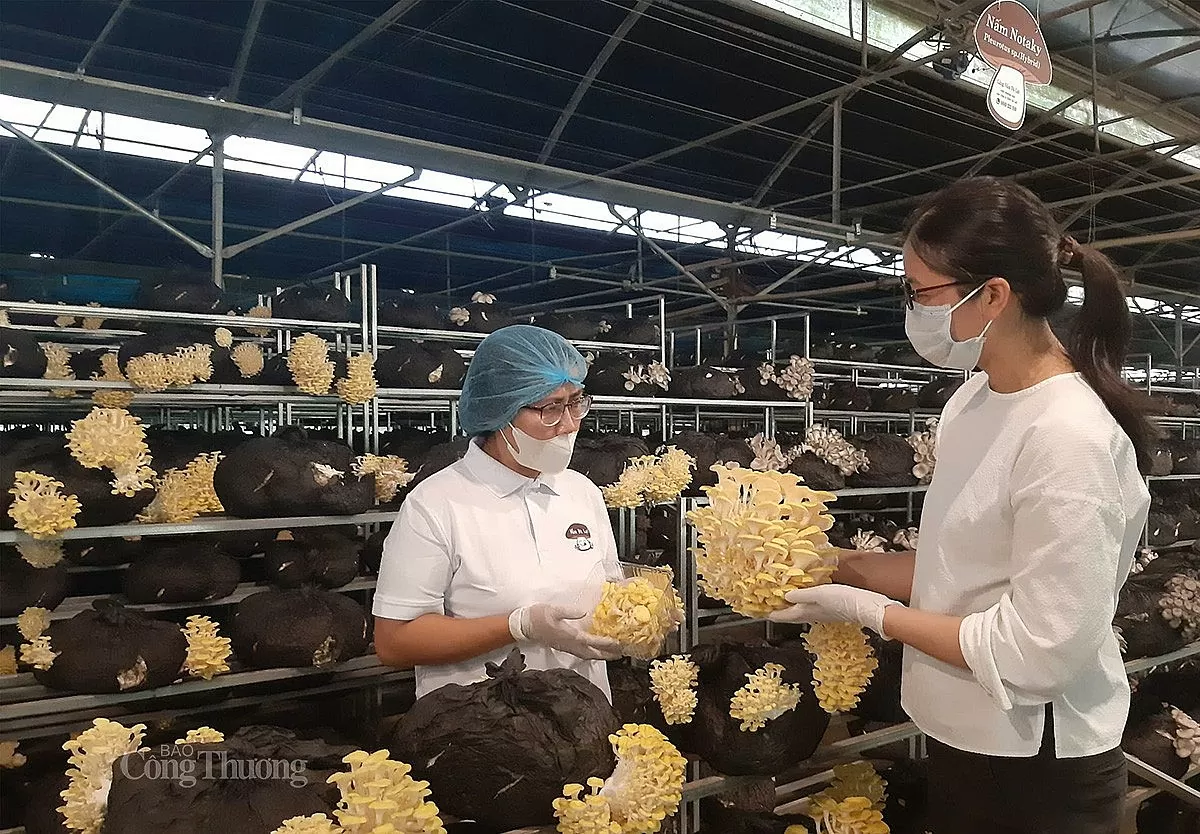 |
| Ms. Pham Minh Hoa (right) guides workers in harvesting golden mushrooms at the farm. |
Dalat Mushroom Company Limited is one of the very few mushroom growing enterprises that have achieved organic certification in Vietnam. Talking to reporters of the Industry and Trade Newspaper, Ms. Pham Minh Hoa - founder and Director of Dalat Mushroom Company Limited said that initially, the mushrooms produced were processed for export to Japan.
However, with the desire to introduce high-quality, healthy products to domestic consumers, from the beginning of 2020, Da Lat Mushroom Village opened its doors to visitors to experience mushroom picking and enjoy some dishes made from fresh mushrooms and organic vegetables picked from the garden.
With the goal of popularizing this nutritious food to domestic consumers as quickly as possible, Da Lat Mushrooms also opened a service to guide the use of mushrooms and sell mushrooms online directly to consumers. At the same time, signed consumption contracts with major supermarkets.
"At some supermarkets, the company directly introduces the uses of each type of mushroom, how to prepare it, and invites customers to taste it. As a result, many customers decide to buy it after trying it, and after a few times, they become "regular" customers of the company," said Ms. Hoa.
Up to now, the export value of organic agricultural products has only reached about 20 trillion VND, accounting for 1.46% of the total export turnover of agriculture, forestry and fishery products - a modest figure compared to the available advantages.
Mr. Truong Xuan Sinh, representative of the Center for Testing, Verification and Quality Services (RETAQ) under the Department of Quality, Processing and Market Development (Ministry of Agriculture and Environment), said that with favorable natural conditions, diverse climate, land and rich product ecosystem, Vietnam is completely capable of positioning the national brand of organic agriculture on the world map.
In order for organic agriculture in Vietnam to develop in the right direction and at the right level, many experts believe that there needs to be a comprehensive national strategy focusing on planning organic production areas suitable for each ecological region; perfecting the legal framework, a unified and transparent set of criteria, and most importantly, developing a chain of links between farmers - businesses - markets.
| Linking organic production with national branding, green transformation, circular economy development and ecotourism will help increase product value and create momentum for spreading in the production community. At the same time, it is necessary to promote digitalization of production information, traceability, improve the quality of certification and inspection systems, and optimize costs to make it easier for businesses and people to access. |
Source: https://congthuong.vn/huong-di-nao-cho-nam-huu-co-viet-388561.html







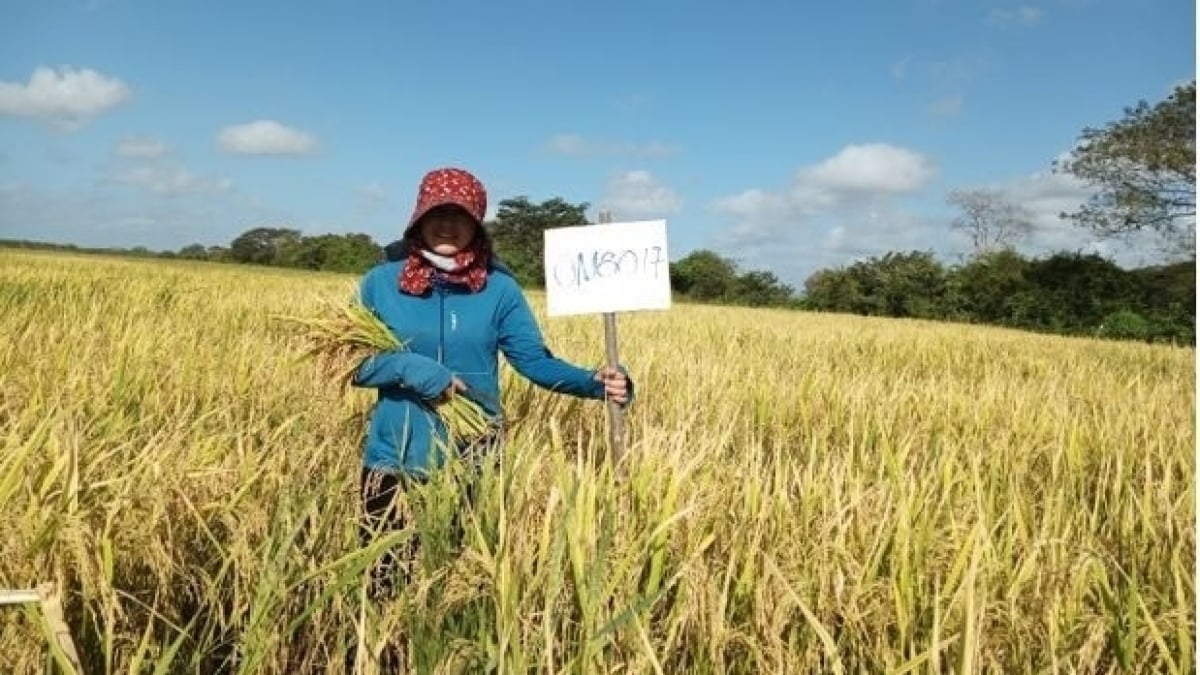
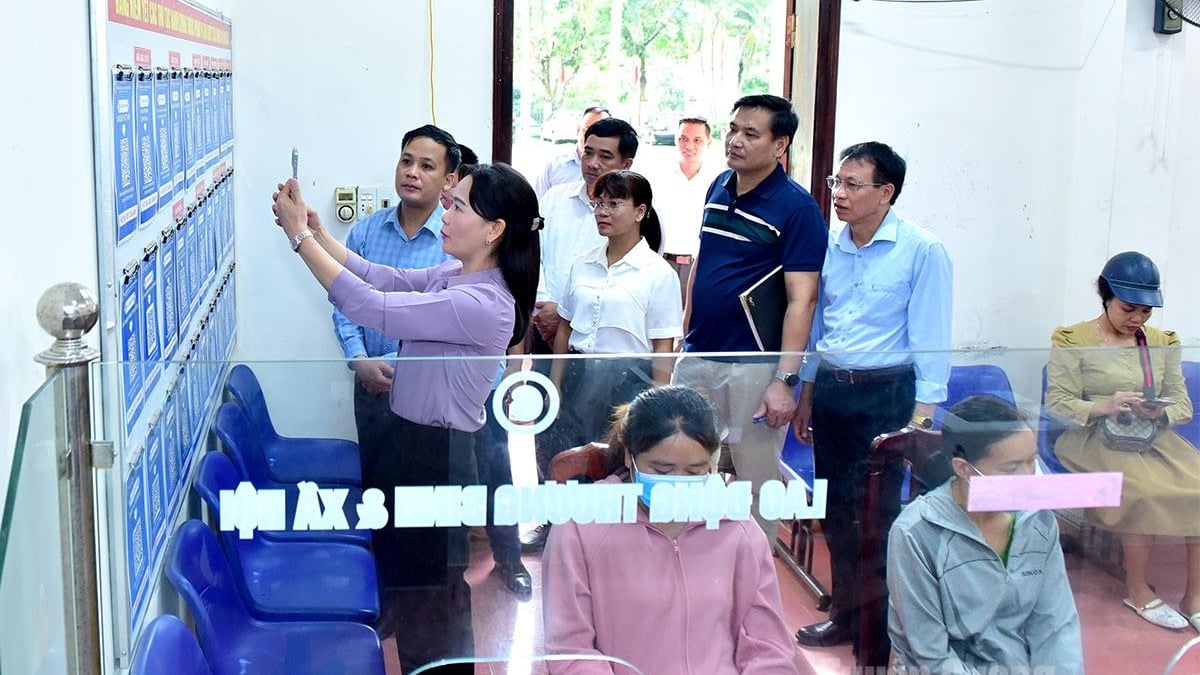
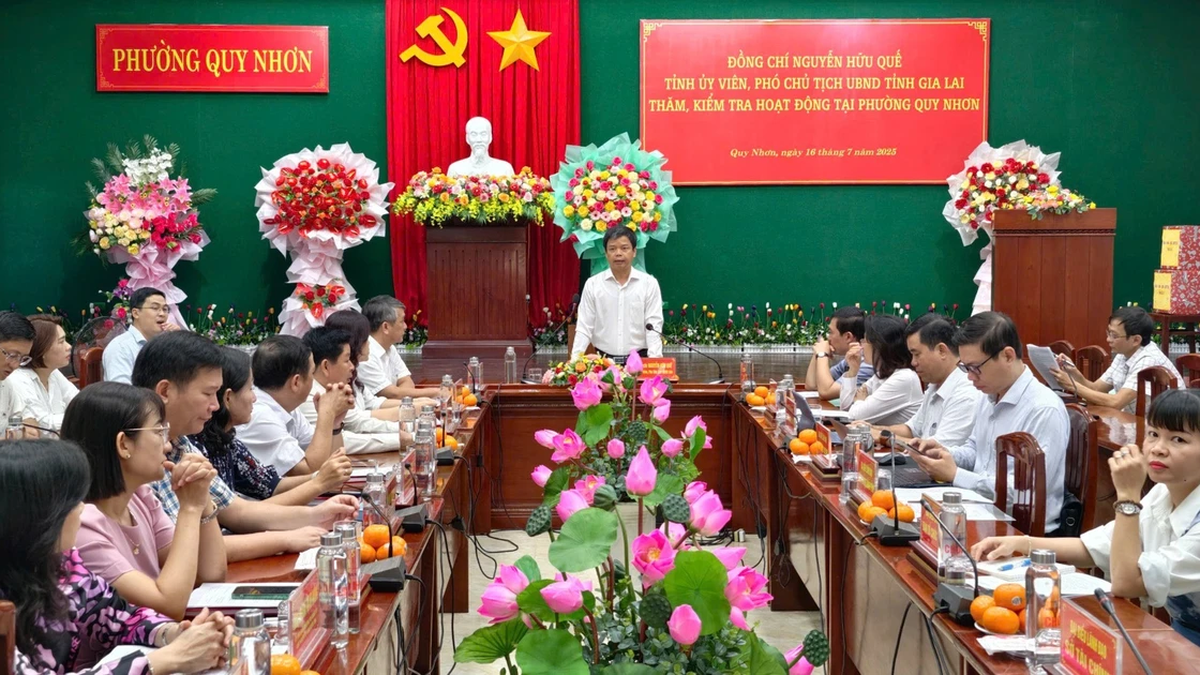





































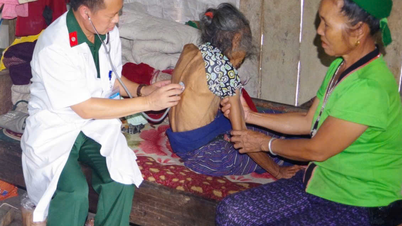











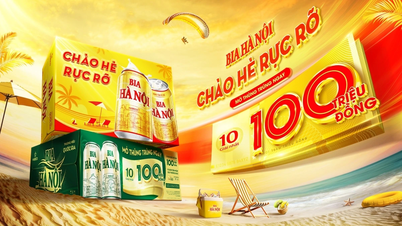









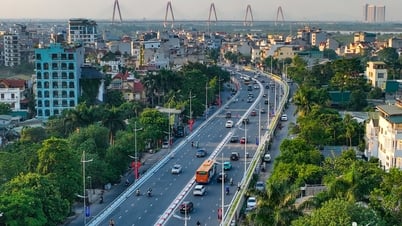
































Comment (0)